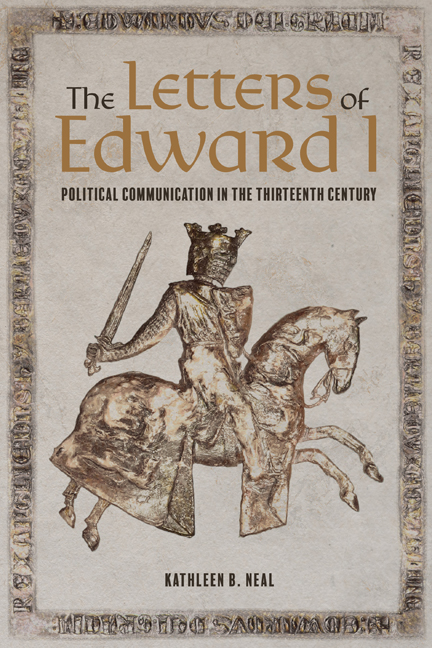Book contents
- Frontmatter
- Dedication
- Contents
- List of Illustrations
- Preface
- Abbreviations
- Introduction: Letters and the Language of Power
- 1 Royal Letters: The Authority of a Form
- 2 Rhetorical Refinement: Epistolary Editing and its Implications
- 3 Announcing the Message: Communities of Reception and Royal Ideology
- 4 ‘Dear Cousin’: Affect and Epistolarity beyond Borders
- 5 Keeping Friends Close: Strategies of Epistolary Alignment
- 6 Rhetoric Under Strain: Re-writing Royal Epistolarity
- Conclusion. Royal Epistolarity: The Voice of the King
- Appendix
- Bibliography
- Acknowledgements
- Index
3 - Announcing the Message: Communities of Reception and Royal Ideology
Published online by Cambridge University Press: 09 February 2021
- Frontmatter
- Dedication
- Contents
- List of Illustrations
- Preface
- Abbreviations
- Introduction: Letters and the Language of Power
- 1 Royal Letters: The Authority of a Form
- 2 Rhetorical Refinement: Epistolary Editing and its Implications
- 3 Announcing the Message: Communities of Reception and Royal Ideology
- 4 ‘Dear Cousin’: Affect and Epistolarity beyond Borders
- 5 Keeping Friends Close: Strategies of Epistolary Alignment
- 6 Rhetoric Under Strain: Re-writing Royal Epistolarity
- Conclusion. Royal Epistolarity: The Voice of the King
- Appendix
- Bibliography
- Acknowledgements
- Index
Summary
Medieval habits of textual engagement favoured aurality. In the case of epistolarity, not only the production but also the reception of letters entailed transformations between the spoken and written word which could be witnessed by others, enabling royal letters to proclaim their message to audiences beyond the specified addressee. As Martin Camargo has argued, letters are therefore more properly considered as ‘events, rather than objects … public, oral performances rather than private, written exchanges’. This had important implications for the capacity of royal letters to function as proclamations of ideology addressed to communities of reception that varied in size, emanating from the sender and the nominal recipient, respectively. Depending on the nature of the correspondence, its probable community of reception might be no bigger than the named recipient's immediate retainers, or it might constitute the king's council, the ‘community of the realm’ in its parliamentary form, or the whole possible public of ‘those who read and hear’.
Awareness of the likely composition of the community of reception influenced the linguistic choice and rhetorical construction of royal letters, as well as the choice of seal and other material signs of register. A letter addressing a royal clerk working to provision the royal army in Wales, far from his fellows in the wardrobe, would be unlikely to reach beyond his immediate companions, and would therefore merit little rhetorical elaboration. A much larger and more elite audience could be anticipated for a letter sent to the king's lieutenant ordering him to enquire into matters of significance to the magnates, or a reply to the prince of Wales on a question of politico-legal import. Such opportunities provided useful platforms for ideological and political statements. The more closely the context of reception was associated with elite assemblies – such as parliaments, councils or chanceries – the more carefully the king's epistolary commands tended to be crafted with such wider communities of reception in mind; for example, by reference to the values presumed to underpin the identity of that group, and the king's relationship to them. In this way, letters not only communicated a specific message in a given moment, but, cumulatively, a discourse with which the king's allies, peers and officials were encouraged to identify.
- Type
- Chapter
- Information
- The Letters of Edward IPolitical Communication in the Thirteenth Century, pp. 75 - 95Publisher: Boydell & BrewerPrint publication year: 2021



